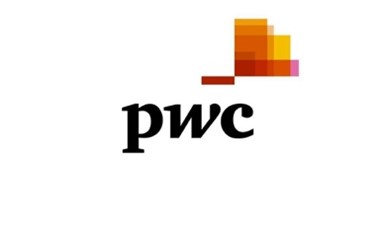In this article, Federico MARTINETTO (ESSEC Business School, Exchange Global BBA, 2021) explains about the importance of the data automation in the audit process.
Why is intelligent automation important for the audit processes?
Traditional auditing has the following problems, for which intelligent automation can provide a solution:
- It relies on manual labor of intensive data collection and examination, which makes traditional auditing costly, time-consuming, and error-prone.
- It relies on sampling, where a representative sample of the data is selected to identify risks. This is because examining the entire data is expensive and time-consuming. If the selected data is not representative of the population being tested, auditors may conclude that there are more or fewer problems than actually exist. This problem is referred to as sampling risk.
By leveraging RPA and AI, intelligent automation:
- Reduces the time spent on repetitive and tedious auditing tasks such as data collection, data extraction, or reporting. Human intelligence and talent can then be deployed in more value-added processes.
- Enables a more granular data analysis by reviewing all available data automatically instead of sampling. As a result, auditors will gain a better understanding of an organization’s risk and be able to focus on high-risk documents and anomalies.
PwC, one of the world’s leading providers of audit, consulting, tax and advisory services, created RPA bots to streamline report development for monthly management, accounts receivable and travel expense reports. Report development time was reduced from one week to minutes with a suite of IBM RPA bots.
How does intelligent automation improve the audit processes?
Faster and more comprehensive data collection and cleaning.
Whether it is an internal or external audit, auditors gather evidence about business processes from a variety of sources such as process documents, invoices, system logs, or reports. Gathering data from unstructured sources is burdensome when executed manually. Intelligent automation tools can read and understand the context of documents with NLP and intelligent document processing technologies. This enables intelligent bots to:
- Automatically convert unstructured data to a structured format
- Perform calculations with extracted data
- Combine data from different sources and input it into a target file.
As a result, auditors can review the entire population instead of just a sample in a fraction of the time it would take to perform a manual audit.
In addition to statistical analysis and visualizations, intelligent bots can perform analyses on gathered data with machine learning algorithms and identify anomalies such as potential fraud or suspicious IT logs, according to predetermined rules. By flagging these anomalies, auditors can focus on high-risk areas throughout the population.
Moreover, AI-enabled bots can learn and adapt to datasets so they can improve the accuracy of anomaly detection over time.
For instance, researchers from Rutgers University implemented an RPA bot for a public accounting firm. While testing the deployed bot, the researchers overstated the loan amount balance of some transactions, and the bot could detect all the anomalies.
Reduction in manual work can allow auditors to conduct audits more often. This can help businesses to adapt to the ever-changing business environment and provide a higher level of assurance. Intelligent bots can also continuously monitor determined controls in real-time and flag issues for further examination by auditors.
Three steps for implementing intelligent automation in audit
Step 1: Identify processes suitable for automation
It is important to understand how different audit processes are carried out in order to determine which ones should be automated. By using event logs and other process-related data, auditors can leverage process mining to identify process patterns and deviations and create full visualizations of processes. Most major intelligent automation vendors also provide process mining capabilities.
This higher-level understanding enabled by process mining helps auditors to determine which audit processes:
- are repetitive, rule-based, and time-consuming. These processes are low-hanging fruits for automation.
- require human judgment and professional skepticism. Auditors can define the rules governing human judgment for these processes and have bots flag cases that deviate from them for further examination.
Step 2: Test your bots to ensure that they function as desired
After determining the processes for automation and building bots for them, auditors should test the bots in a controlled environment to ensure:
- They carry out the tasks they are designed for without issues
- They handle exceptions well and route the exception to relevant staff.
Step 3: Monitor your automated processes and identify areas for improvement
Auditors should monitor the deployed bots to ensure that they continue functioning as expected. This is because:
- You may discover areas for improvement after deployment
- Bots can encounter data or exceptions that were not included in the test phase
- The business environment is constantly changing, so bots’ performance could degrade over time.
Why should I be interested in this post?
You should be fascinated in this post if the audit process and the analysis of data and their transformation into essential information fascinates you. Technology and all the most innovative tools are a puzzle to solve.
Related posts on the SimTrade blog
▶ Federico MARTINETTO My experience as a PwC Associate Auditor in the Digital Data Hub
▶ Louis DETALLE A quick review of the Audit job…
▶ Pierre-Alain THIAM My experience as a junior audit consultant at KPMG
About the author
The article was written in April 2023 by Federico MARTINETTO (ESSEC Business School, Exchange Global BBA, 2021).



